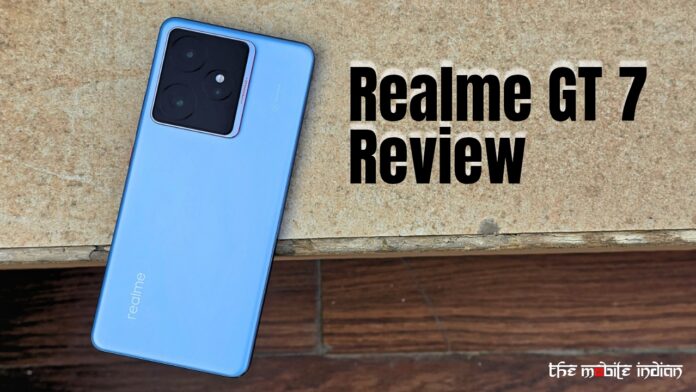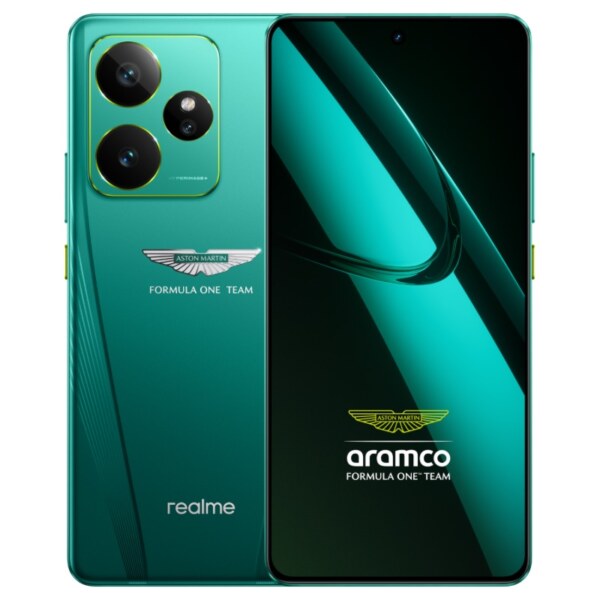Realme’s GT series has been well received in India due to the well handled price-to-performance ratio and with the new Realme GT 7, the company is planning to replicate the same success formula. Will it be able to do so with a starting price of Rs 39,999? We’ll find that out in our review of the Realme GT 7.
Design & Display
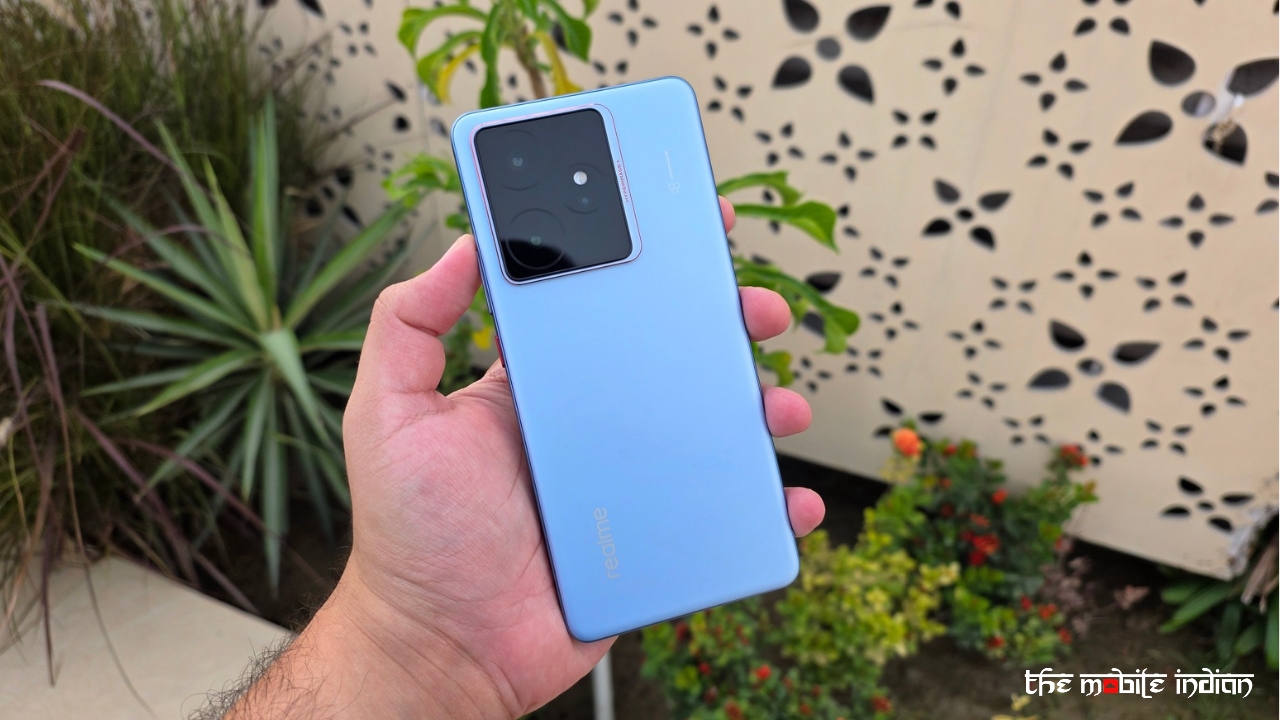
The Realme GT 7 gets a design we have seen from the brand and that isn’t entirely a bad thing. You get a square camera module on the back with a red metal strip running around the boundary of the module along with the “Hyperimage+” branding also written in red.
Paired with the sky blue colour we got for review, the red accent gives it a contrasting look that’s definitely appealing to the eye. The red accent follows over to the power button as well which is another notable attention to detail.
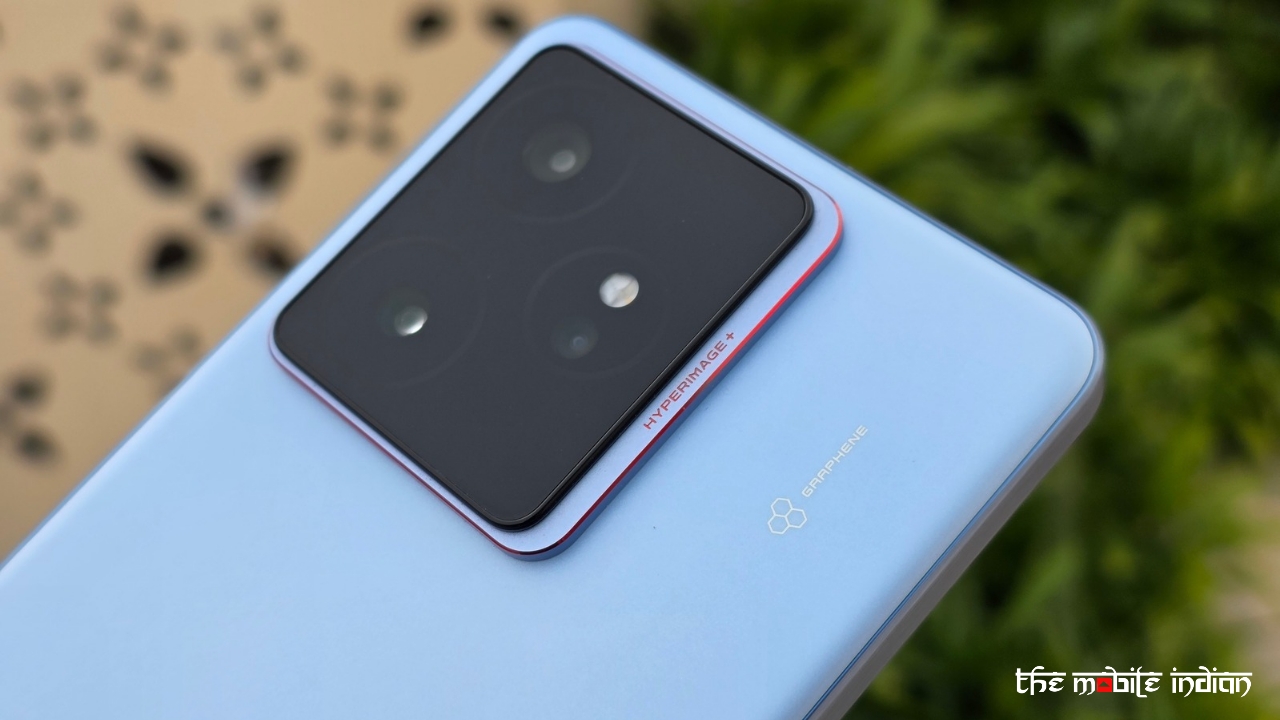
While the frame is flat, it’s made of plastic but is given a brushed metal look and even in terms of in-hand feel, it doesn’t disappoint and doesn’t feel cheap by any means. The back is made of graphene cover infused with fiberglass with a matte finish which feels and looks quite premium.
However, the Realme GT 7 is quite large, thick, and noticeably heavy. If you prefer slimmer, lighter phones that are easier to use with one hand, this form factor might not be for you. For me though, it worked fine with the flat sides and it was grippy to hold.
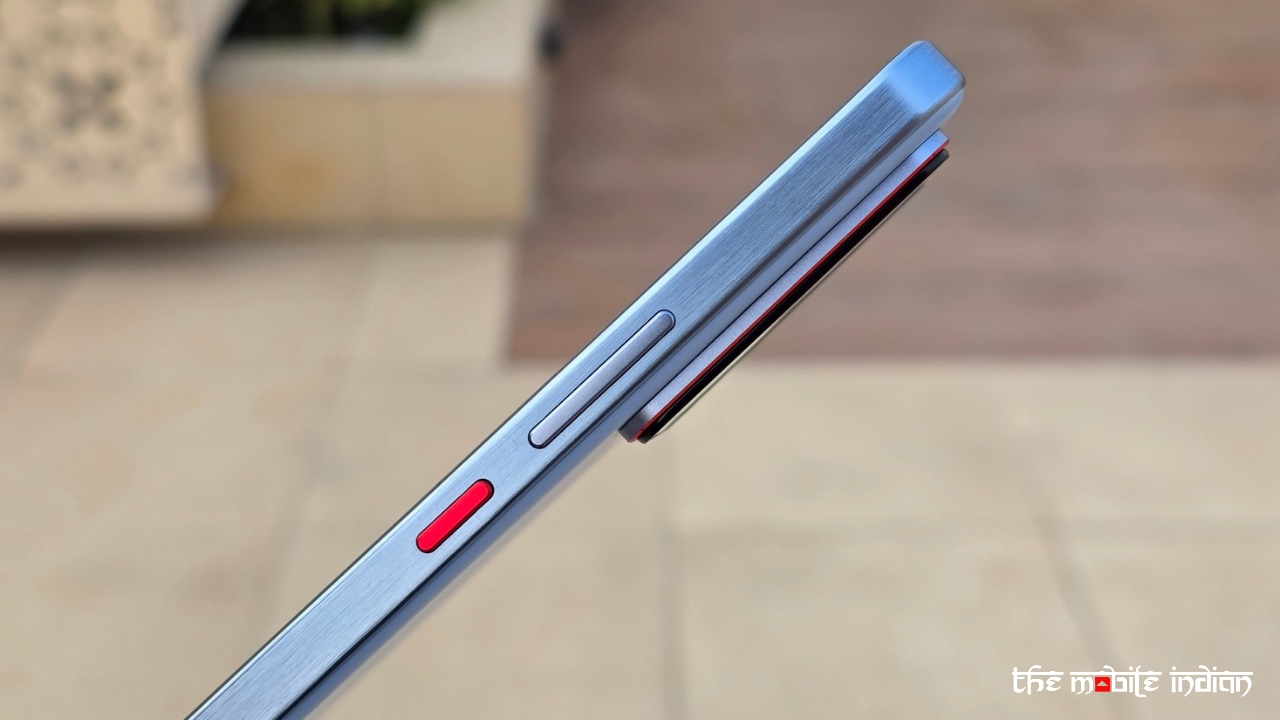
The buttons on the right have a tactile feel and so do the Haptics which are tight and strong. At the top there’s the IR blaster along with a couple of mic openings.
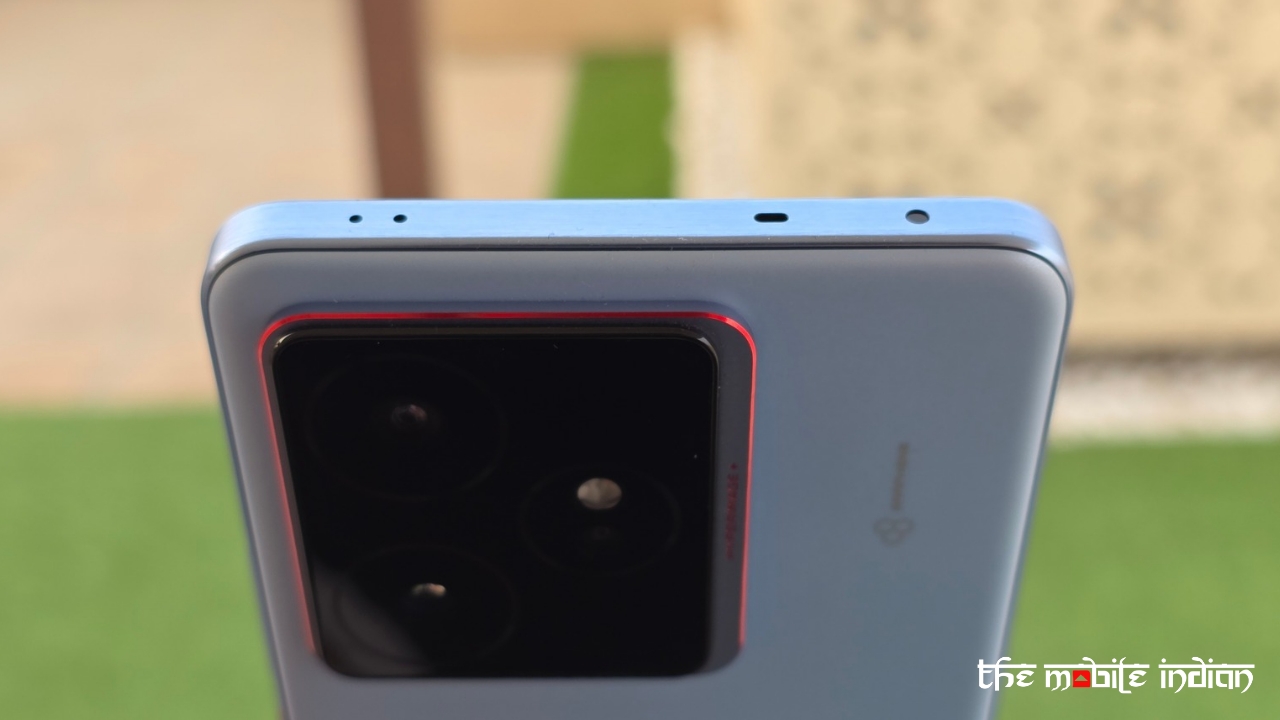
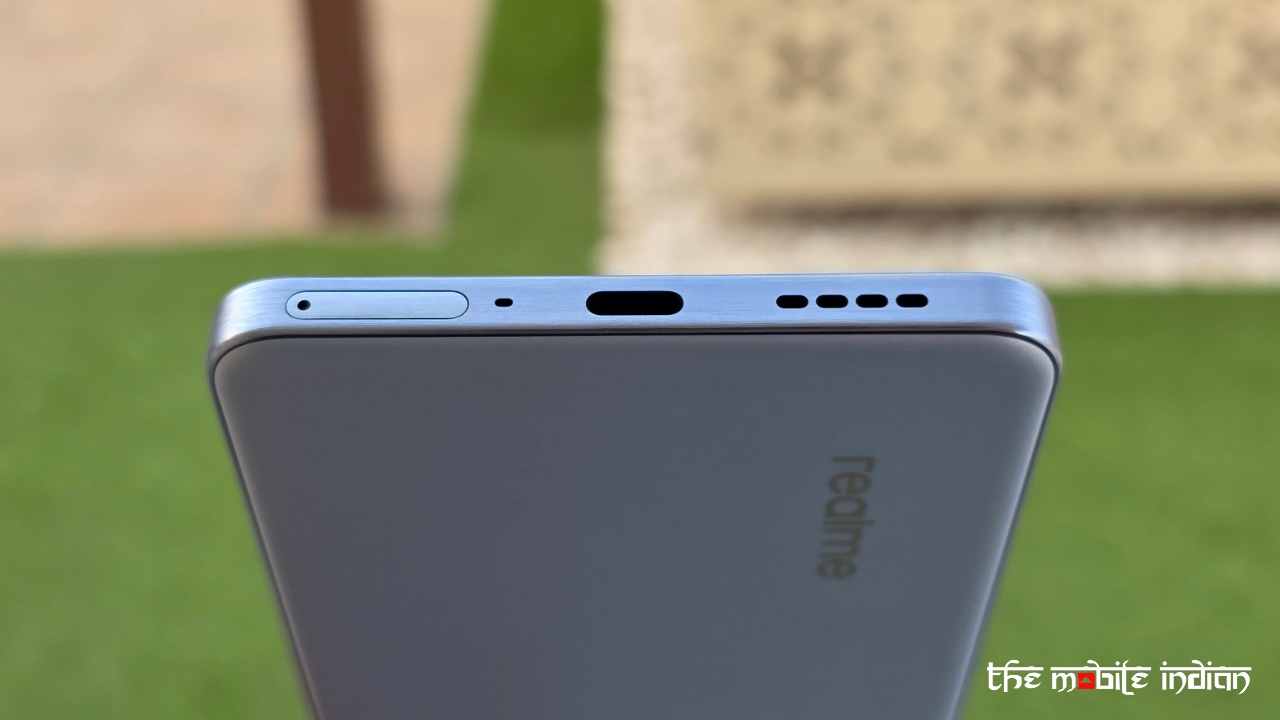
Overall, the Realme GT 7 delivers a premium look and feels comfortable to hold in hand. It is also IP69 rated so a few splashes of water and some dust will not harm the device.
The stereo speakers are loud and clear, delivering crisp audio, especially in the treble and vocal ranges. However, the sound lacks depth and low-end punch, so if you’re after a bass-heavy experience, these might leave you wanting more.
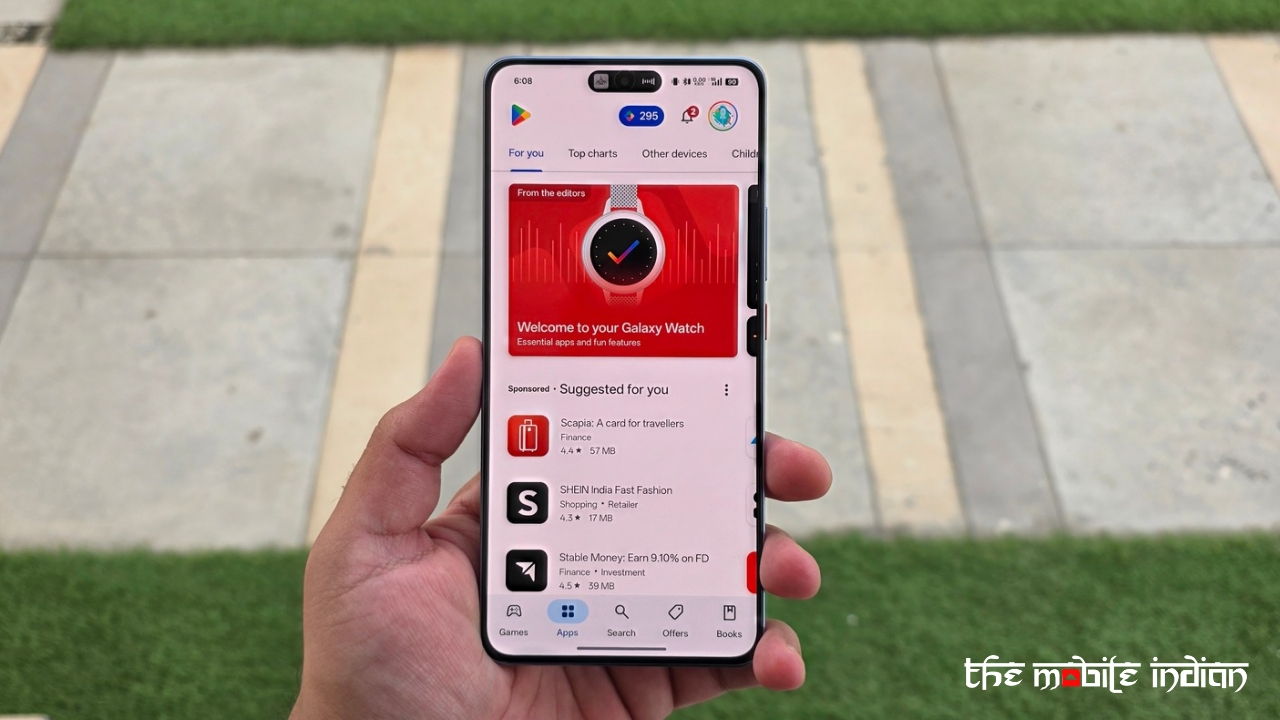
Speaking of the display, the Realme GT 7 gets a 6.78-inch 1.5K LTPS AMOLED Display with 6000 nits peak brightness, 120Hz refresh rate, HDR 10+ and Dolby Vision support, and a 100% DCI-P3 colour gamut.
This display is sharp and vivid. The viewing angles are impressive while the brightness is excellent and handles direct sunlight with ease, so readability is never an issue with this panel.
You do get a couple of useful brightness related features as well, where you can enable Extra brightness so it gets brighter than the default values in conditions where high brightness is required.
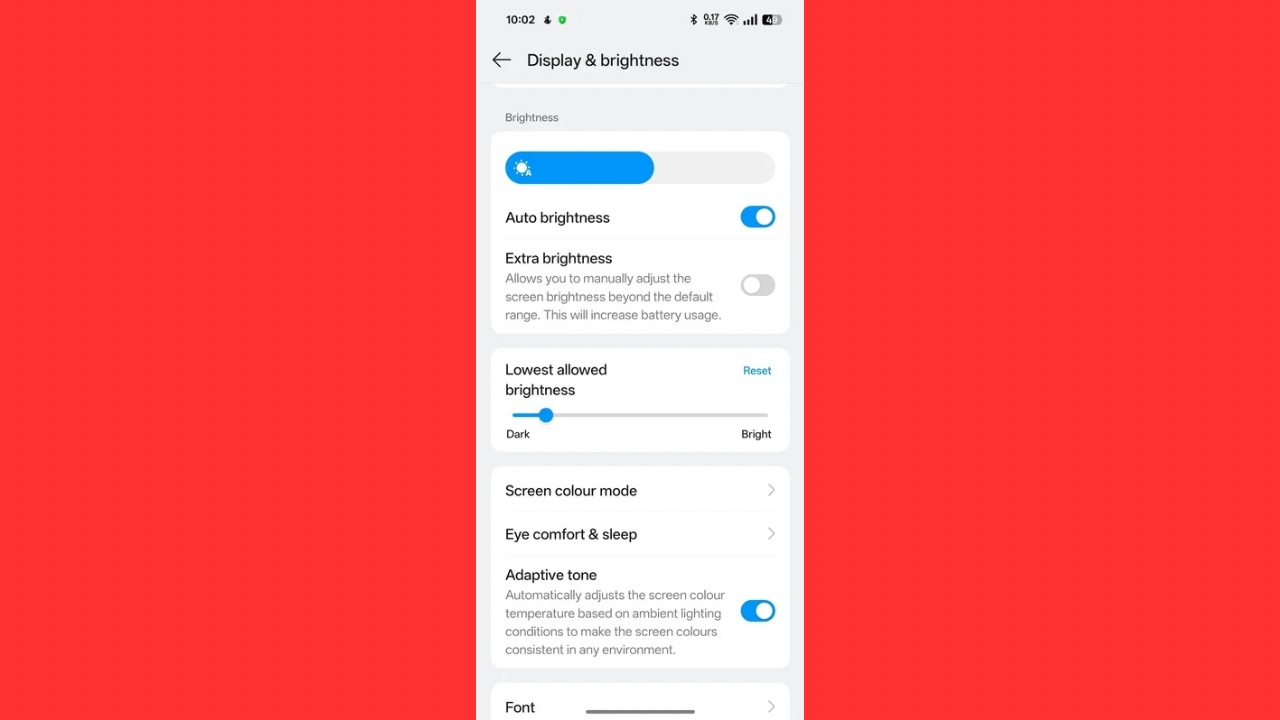
Secondly, you can also set the lowest allowed brightness for when the device automatically drops the brightness in dark environments so it can go lower than the default values.
The display is also quite smooth and responsive. I did find it switching to 60Hz a little more often than it should when set to auto-select the Refresh Rate but that’s not a major issue.
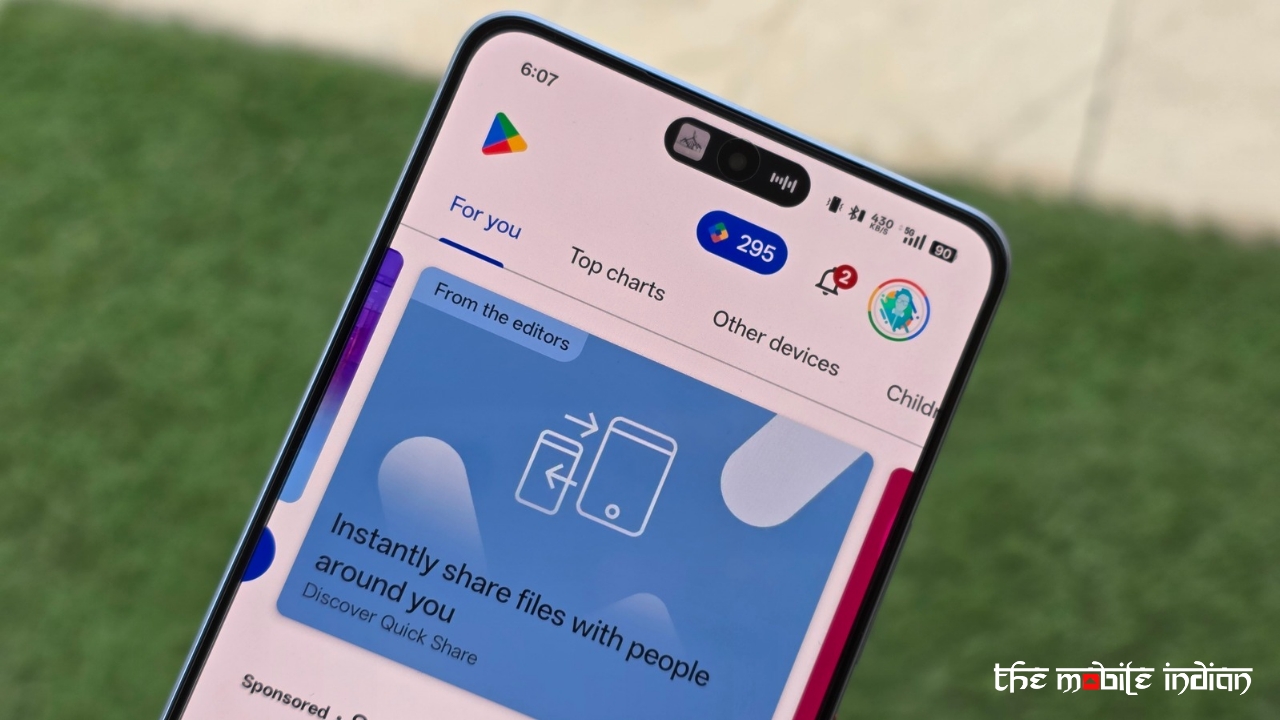
Watching the content on this display was a treat. It supports not only HDR 10 but also the Dolby Vision format in the Netflix App which makes the colours look vibrant and the content sharper. The bezels, even though uneven, don’t look bad at all considering they are quite thin.
The optical fingerprint scanner worked as it should without any issues. It was fast, responsive, and accurate in detecting the print 10 out of 10 times.
Performance & Software
The Realme GT 7 is powered by the MediaTek Dimensity 9400e processor, paired with up to 12GB LPDDR5x RAM and up to 512GB of UFS 4.0 storage.
The new Dimensity 9400e chipset isn’t short of a flagship chip in terms of daily use. It doesn’t show any signs of slowing down even during the heaviest of operations, such as gaming on the highest-end graphics possible in BGMI and Call of Duty Mobile.
The device does warm up a little after extended gaming which is normal, but it doesn’t lag one bit. Frame rates stay constant while the graphics look sharp in such titles. Some gaming features further elevate the experience, such as GT mode, Game focus mode, AI motion control, touch optimisation, and more.
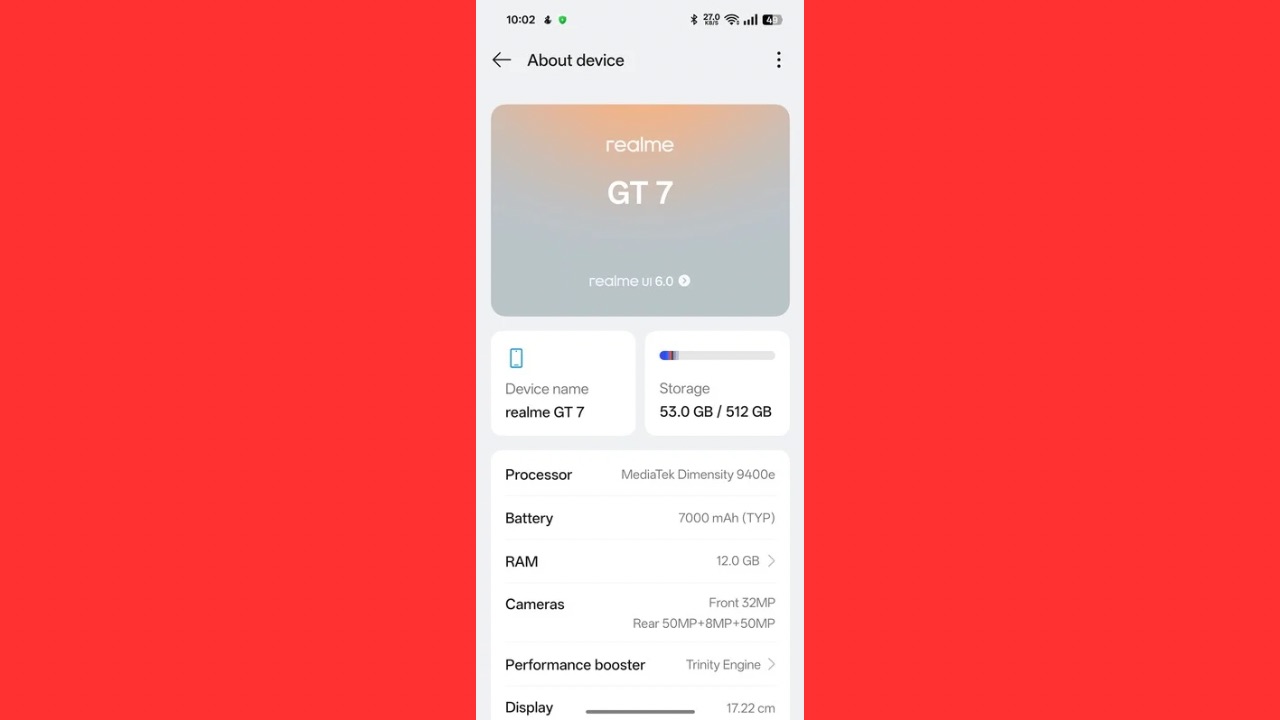
Speaking of software, the device runs on Realme UI 6 based on Android 16 and if you are coming from a recent Oppo or OnePlus device, you’ll find the whole experience familiar. Pre-installed apps include the likes of Game Center, a Translate app, Theme Store, Clone Phone, Compass, App market, FinShell Pay, a stock Internet app, and a couple of more Realme’s own apps. Fortunately, these can be disabled at the user’s will and there’s no such adware that’ll bother you. There’s Glance for Realme as well which can also be disabled from the settings.
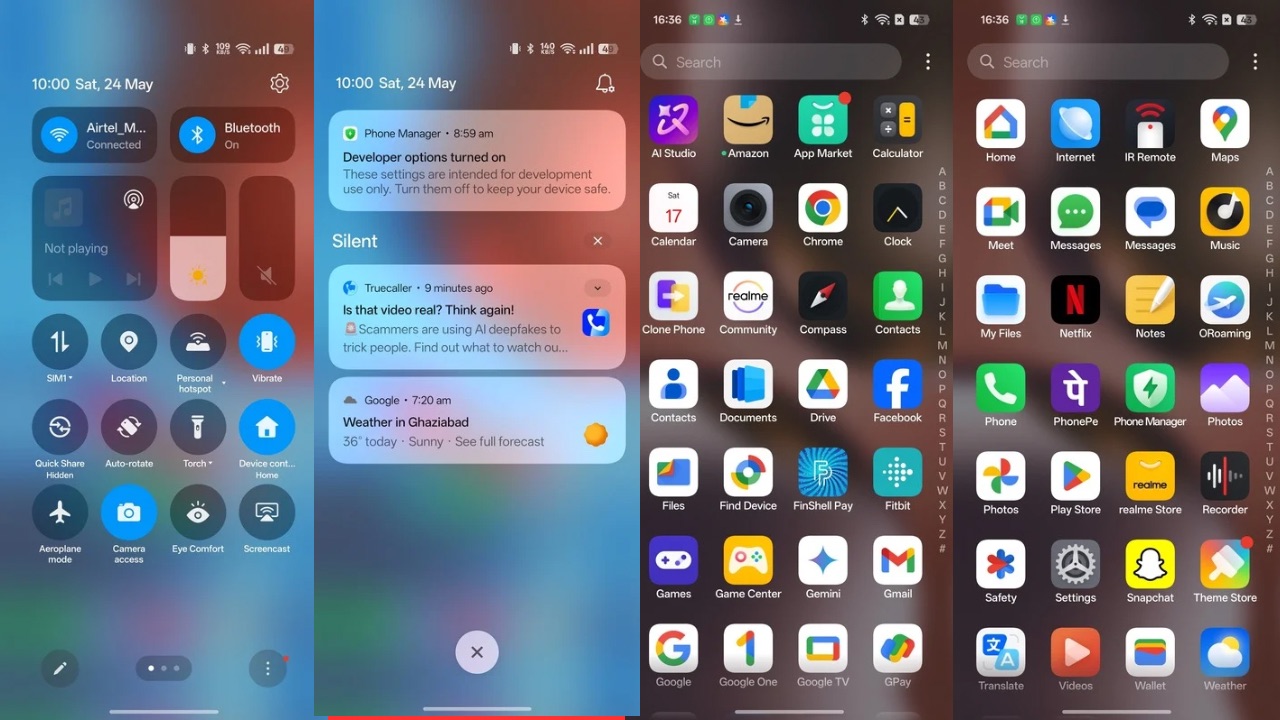
The animations are smooth and snappy which is expected considering this is a flagship chip and the software has been tuned well. Multitasking isn’t an issue either as it can handle everything you throw at it. Switching between apps was a breeze while RAM management was excellent, too.
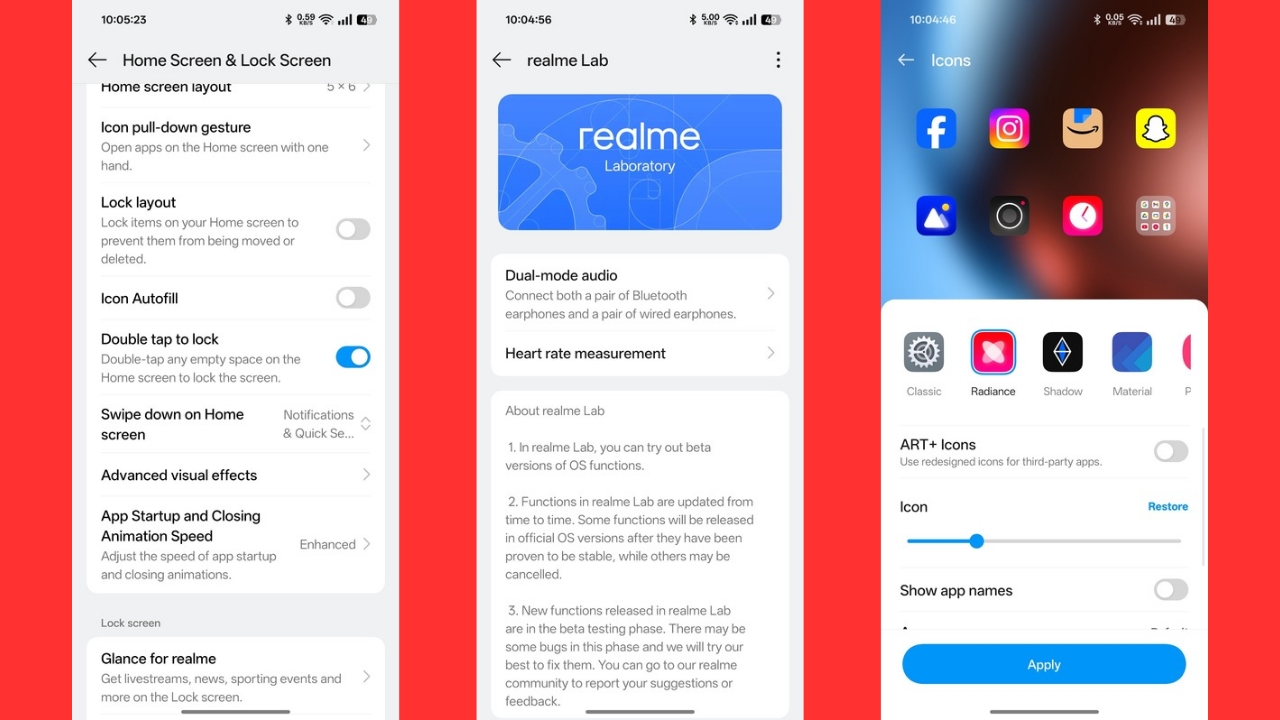
There are a few Realme-exclusive features available, such as the ability to play audio from both a Bluetooth device and a wired device at the same time under the Realme Labs section.
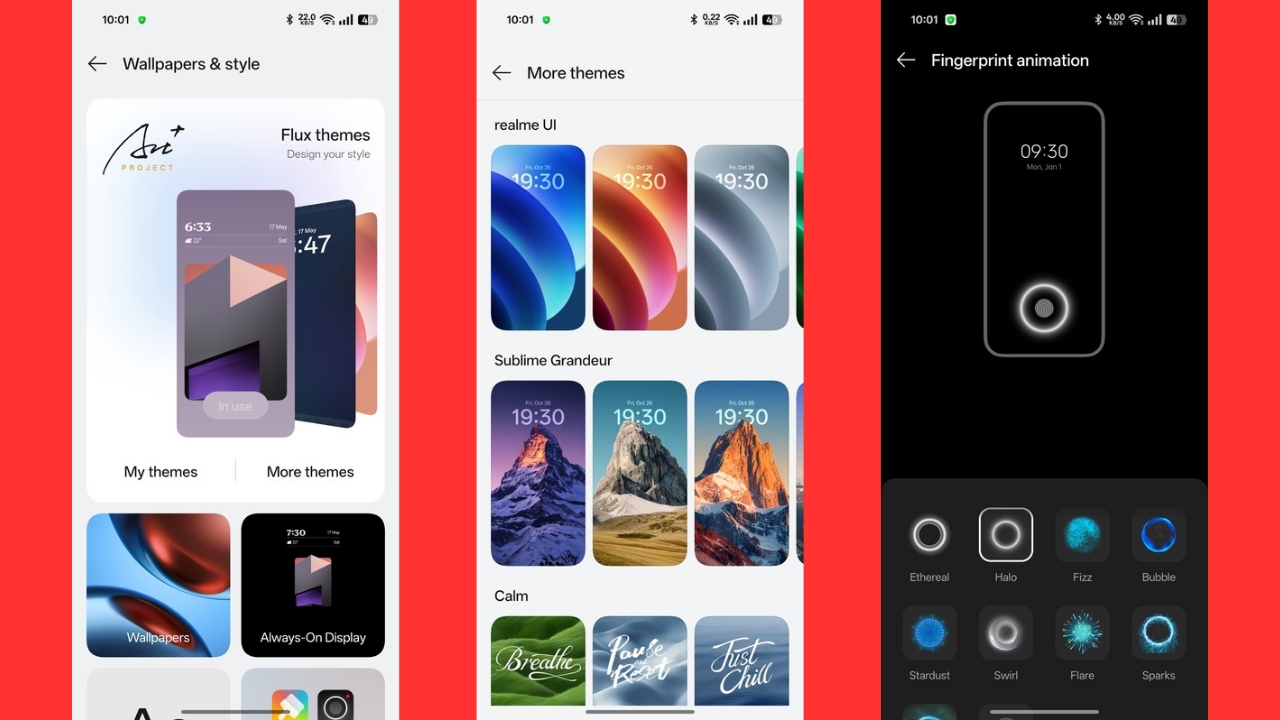
Aside from that, there’s plenty of customisation options you’d expect from Realme UI including the new Flux themes, Always-on display with loads of styles, animation speed customisation, ability to separate or combine the quick settings and notifications shade, Live Alerts pill at the top for controlling music playback, seeing order status Swiggy and Zomato, etc., along with a Smart Sidebar, and more.
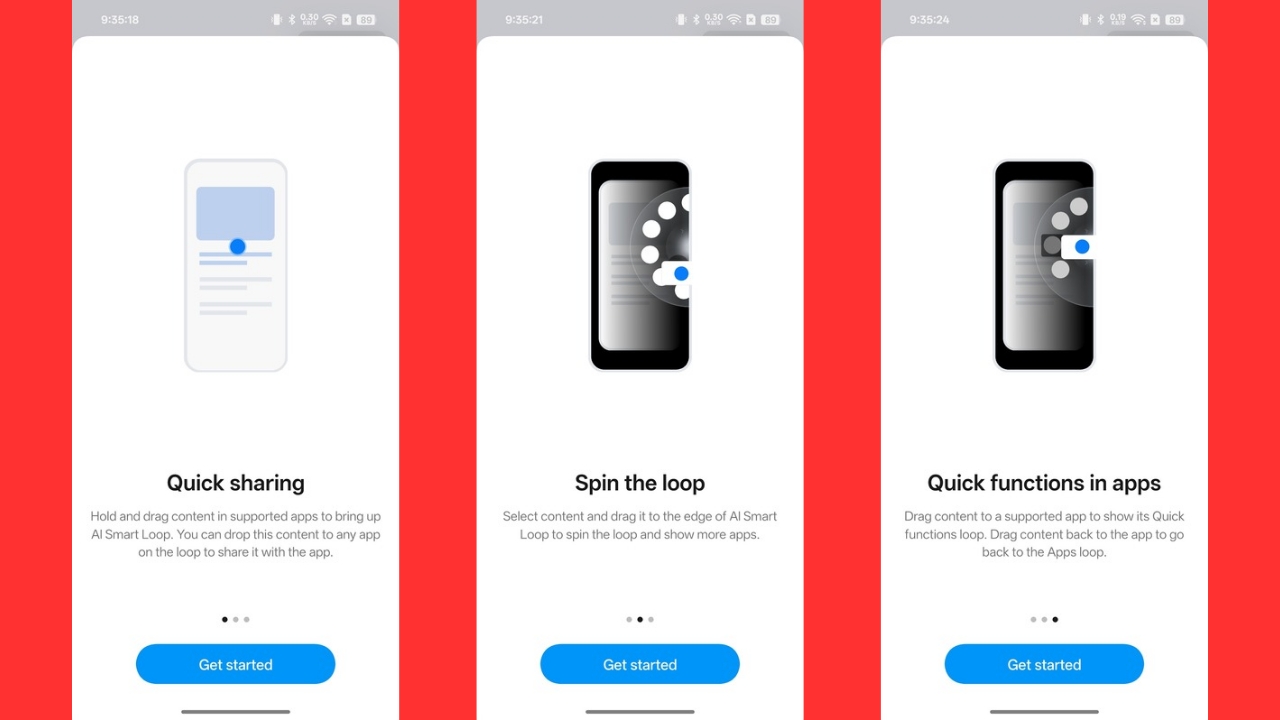
A couple of AI features, apart from Google Gemini, are also present, such as AI Smart Loop where you can drag a screenshot after capturing it to a set of apps you select for sharing it quickly. Then there’s the AI writer that can generate content for you or rework the existing content. The AI Studio app lets you generate a variety of image styles using your photo.
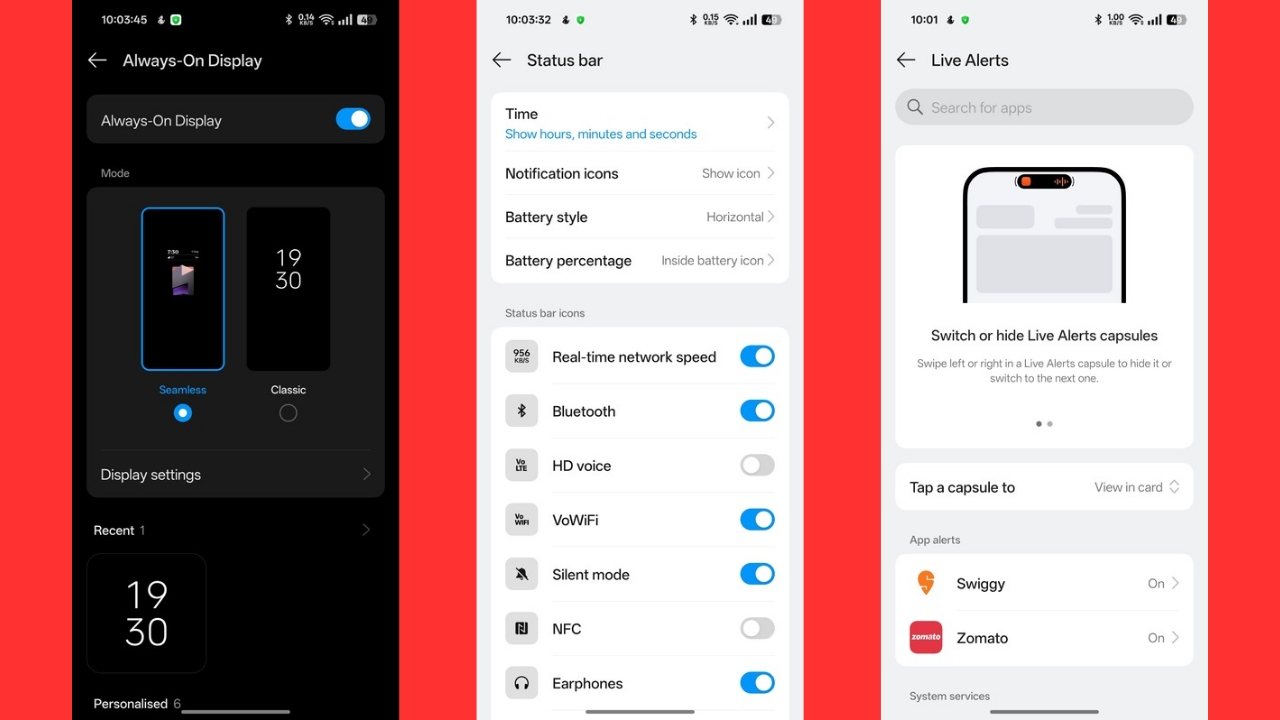
The AI speak feature recites the content on screen while AI summary can summarise the content on the screen and show it to you in a concise manner. Finally, there’s the AI planner feature where you can tap the back of your phone twice to activate it and it will then extract the information from your screen to find events and add them to your calendar on your behalf, thus saving you time.
The Gallery also has a set of AI features like the AI ultra clarity, AI eraser, unblur, AI glare remover, AI landscape, and a remove reflections features.
All these features work well and without any major issues but may not match your expectations at times. Some of these AI features are present exclusively in Realme devices as of now and you find them in Oppo or OnePlus phones, such as the AI smart loop, AI planner, AI glare remover, and AI landscape.
Connectivity performance of the handset was optimal, including that of Wi-Fi, 5G, Bluetooth, and NFC.
Battery Backup
The Realme GT 7 packs a 7000mAh battery with 120W Fast charging support and as you’d expect, the battery life of the device surpasses excellence. You can easily get a 2-day backup if you go light on it and even slightly more than that in certain use cases. Even if you go heavy, you’ll hardly be able to kill it in a day which is what happened while I was reviewing the device
Even with gaming, the device lasted me for around 1 day 16 hours with an 8-hour screen-on time (SOT) which is outstanding. I could easily touch the 10-hour mark for SOT without gaming and that too with a total usage time of close to 2 days.
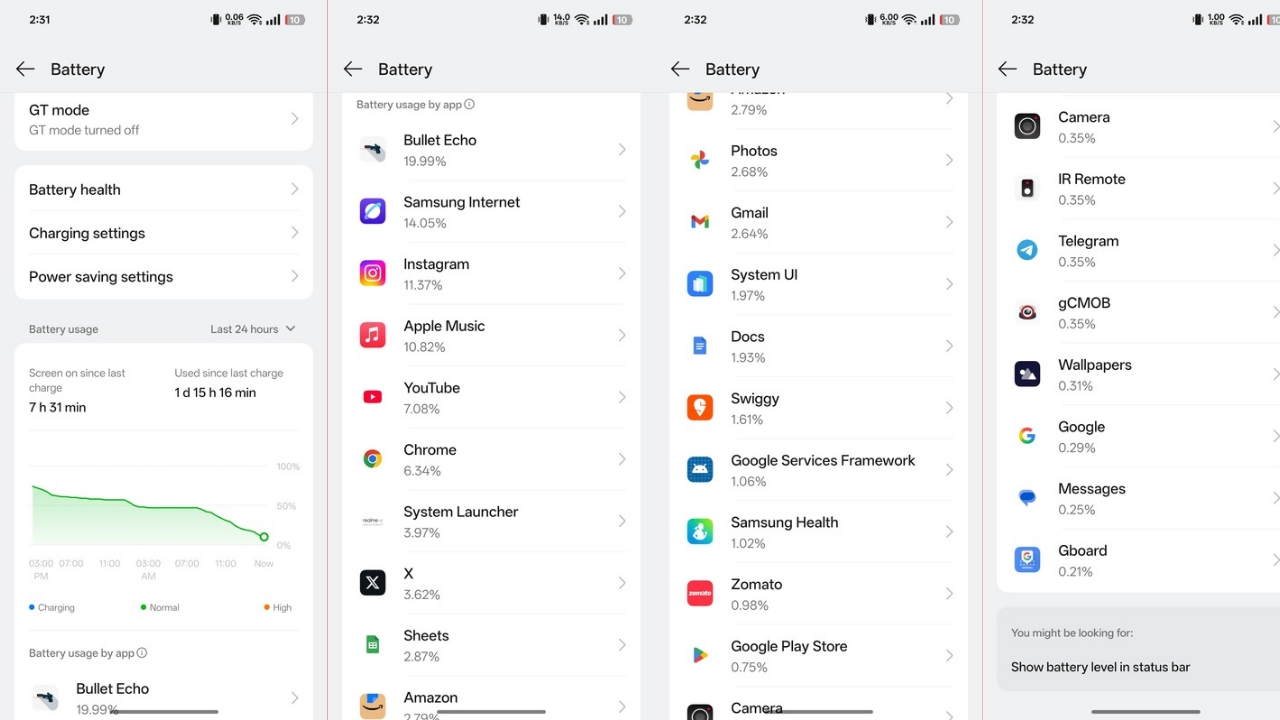
My usage patterns mostly included Wi-Fi calls through WhatsApp, scheduled Always-on display (which would turn off during the night and turn on in the morning), scrolling through Instagram reels, browsing Chrome, watching YouTube, Netflix, chatting on apps like Telegram, Instagram and WhatsApp, and using Apple Music for music playback through the device’s speakers.
As for charging, the included 120W charger took the phone from 1% to 100% in almost an hour which is again excellent considering it’s a huge cell.
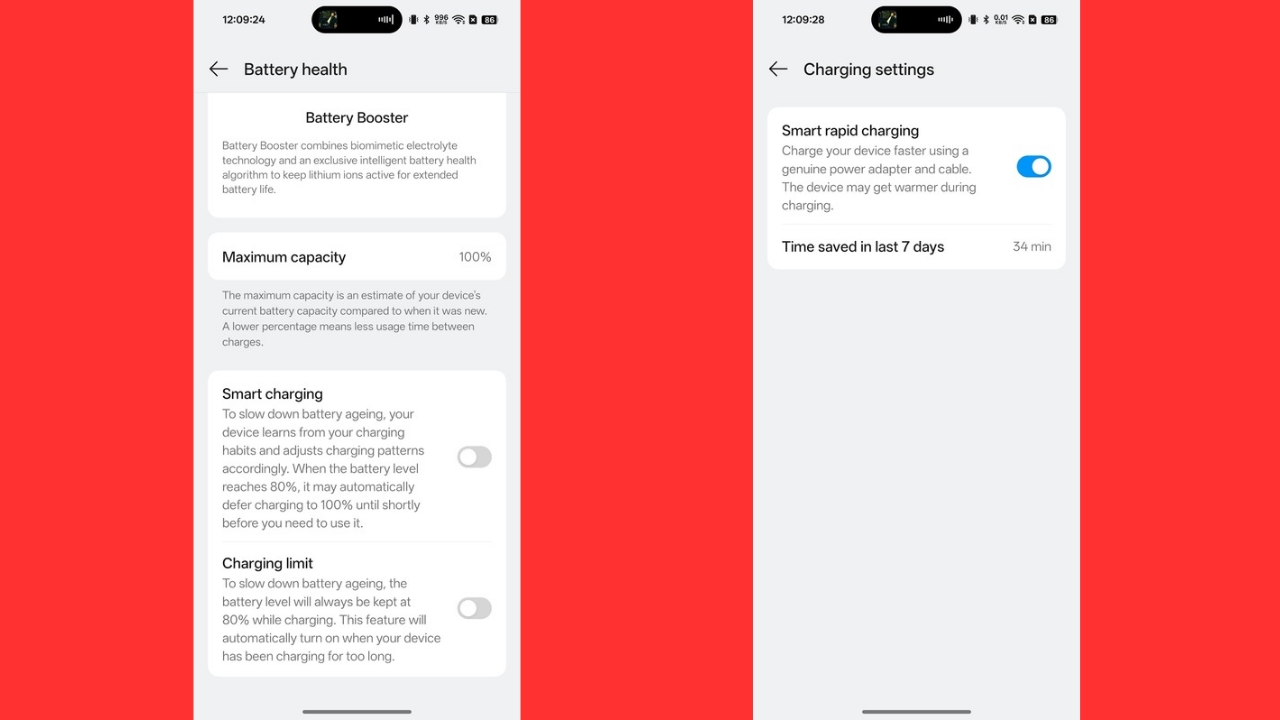
There’s a couple of charging features one can enable to extend the lifespan of the battery, such as the ability to limit charge to 80%, enable smart charging so the device adjusts the speed of charging per your habits, along with the regular power saver. You can also monitor your battery health, thanks to the built-in option provided in the software.
Cameras
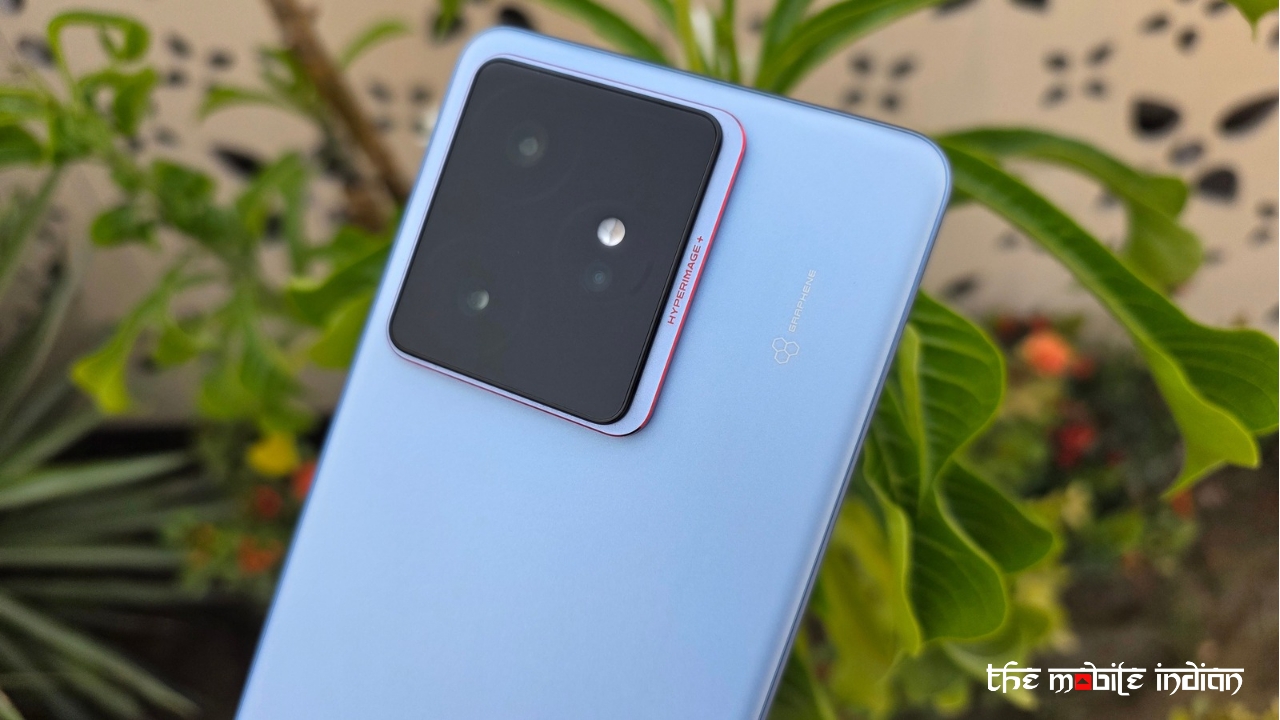
The Realme GT 7 gets a triple rear camera setup, including a 50-megapixel f/1.8 Sony IMX906 primary camera with optical image stabilisation (OIS), a 50-megapixel f/2.0 Samsung JN5 telephoto camera with 2x optical zoom, and an 8-megapixel f/2.2 ultra-wide angle camera. There’s a 32-megapixel Sony IMX615 sensor on the front for selfies.
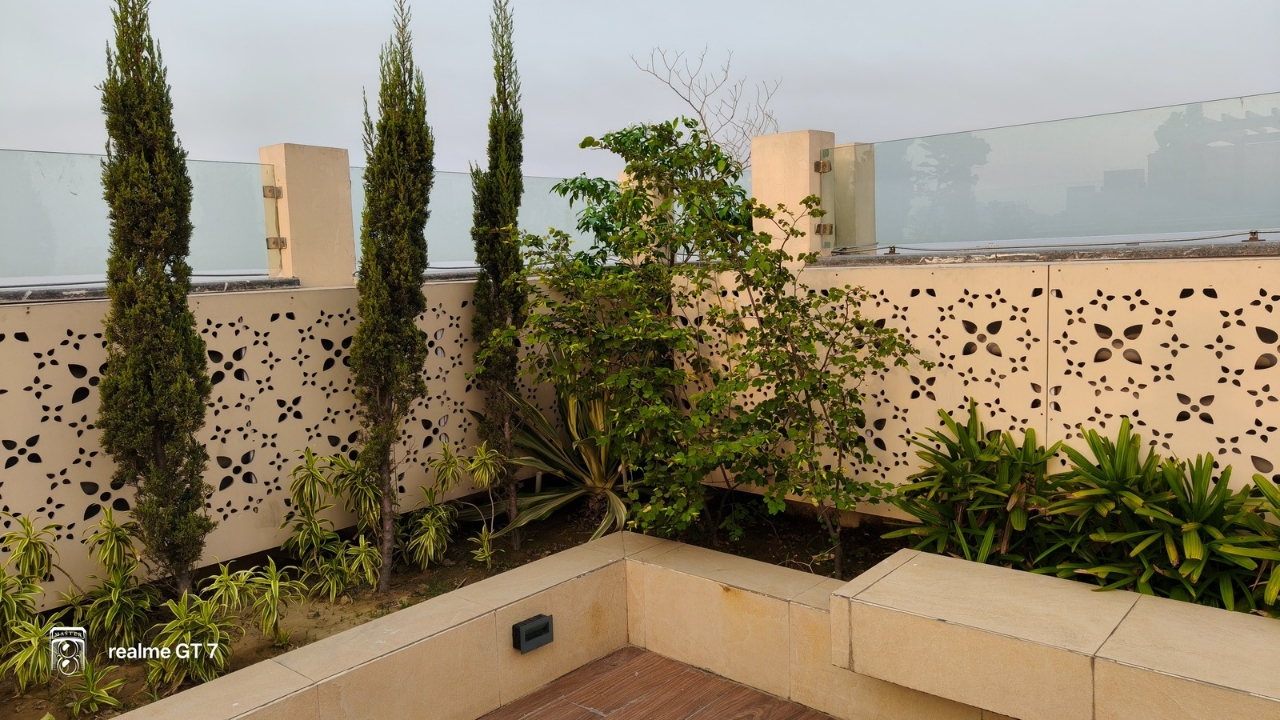
The shots from the primary sensor are decent in terms of how the colours are captured. They are vibrant and punchy in nature. However, the dynamic range could be better considering the shadows get too dark with highlights going for a toss in some scenarios. There’s a high level of detailing in the shot which further elevates the look of the photo.
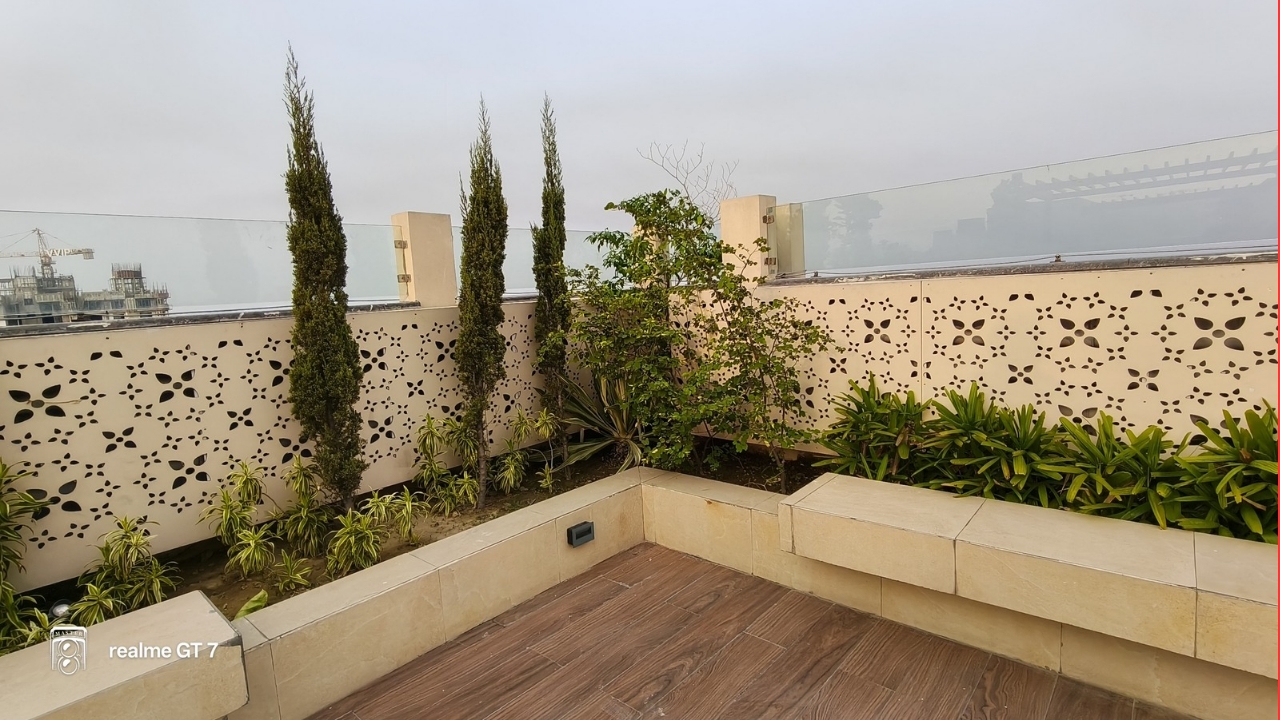
Shots from the ultra-wide angle sensor don’t deviate too much from the main sensor in terms of colours which is a good characteristic. However, don’t expect a high level of detailing in such shots. The EDGE distortion could also have been handled better.

Portrait shots look too good considering the bokeh effect appears natural and the edge detection is spot on. However, the shot can appear darker in some scenarios as the white balance could be mishandled by the device at times. Aside from that, there’s a good amount of detail present in the shot.
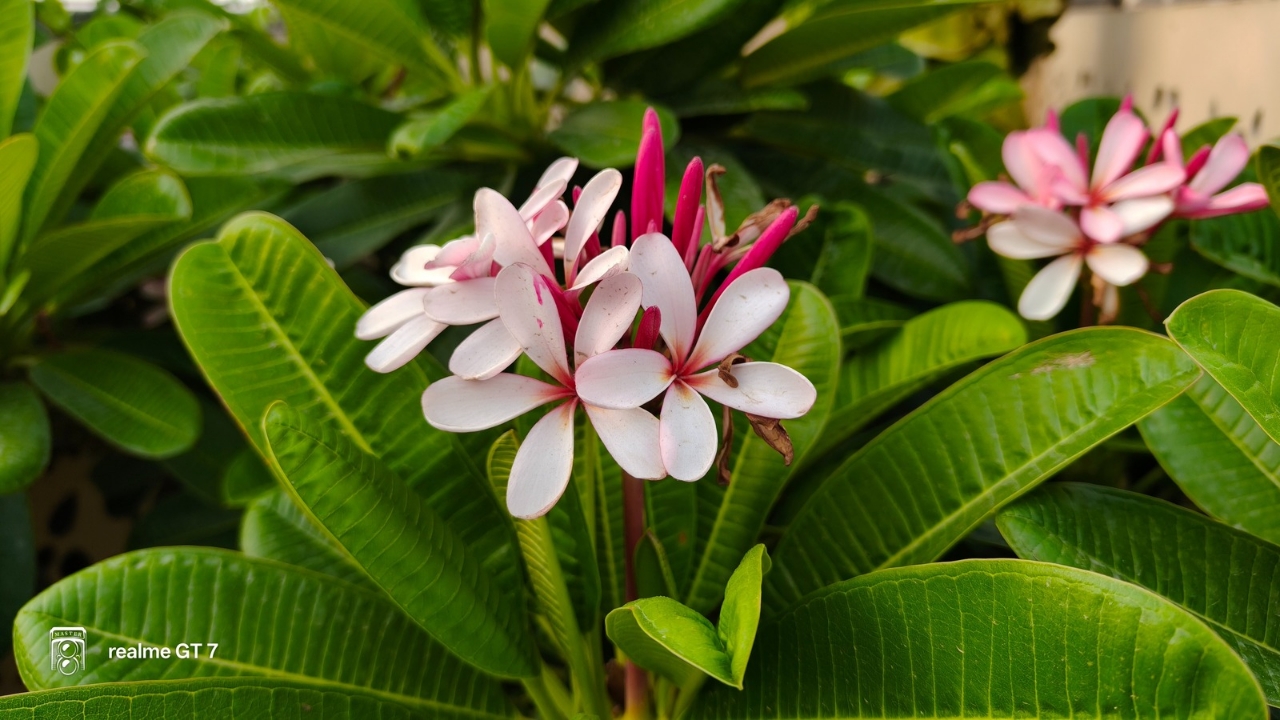
Coming to the telephoto sensor, it supports 2x Optical Zoom and shoots excellent photos at that zoom level. The dynamic range gets slightly better in these photos over the shots from the main sensor. The detailing is also high.
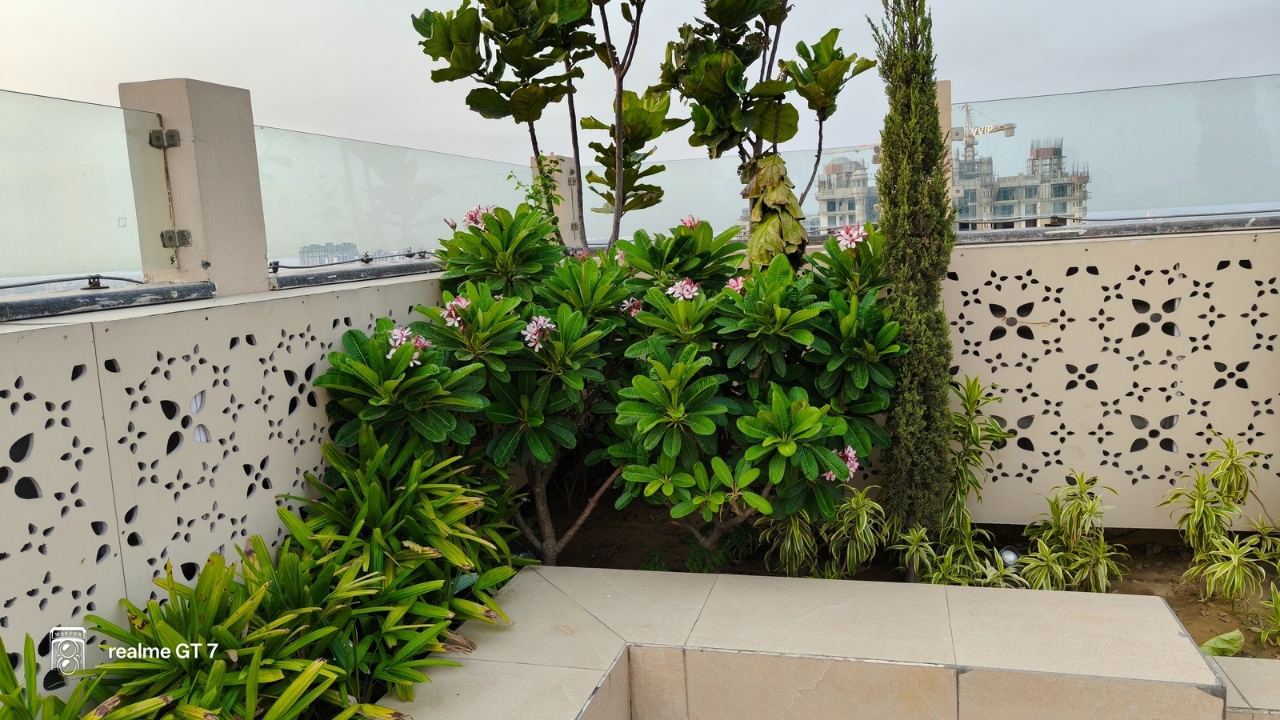
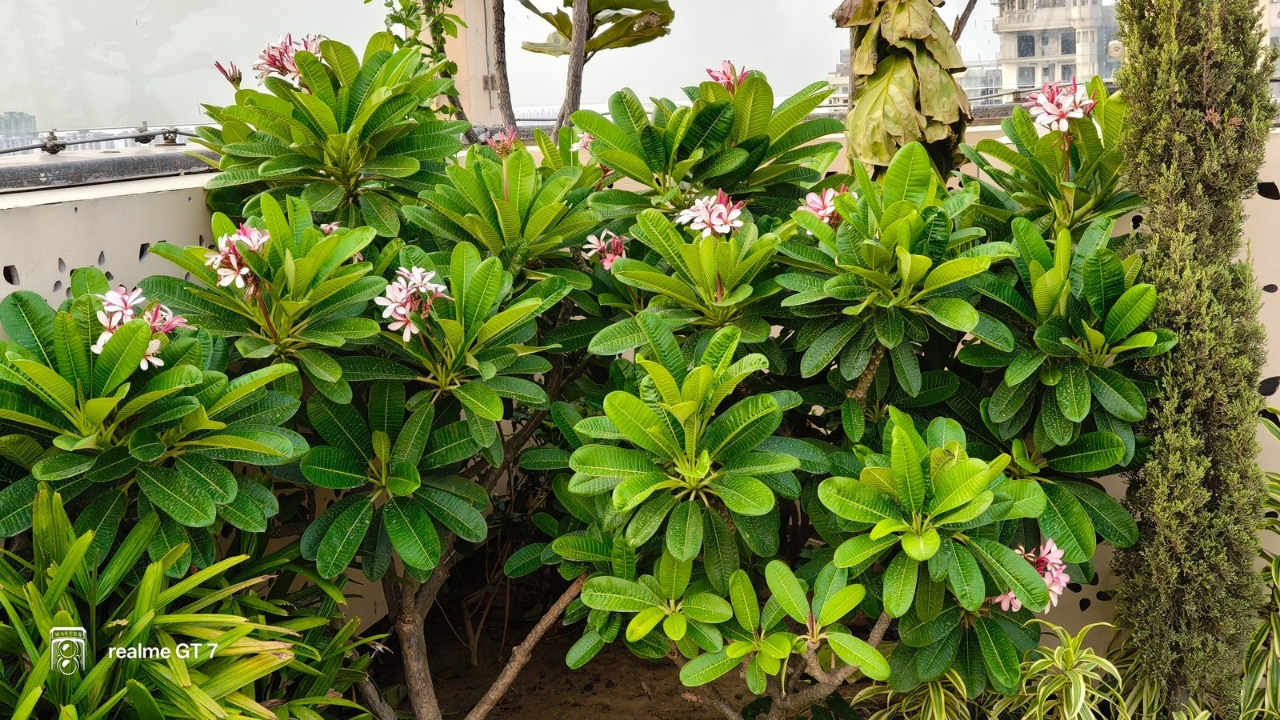
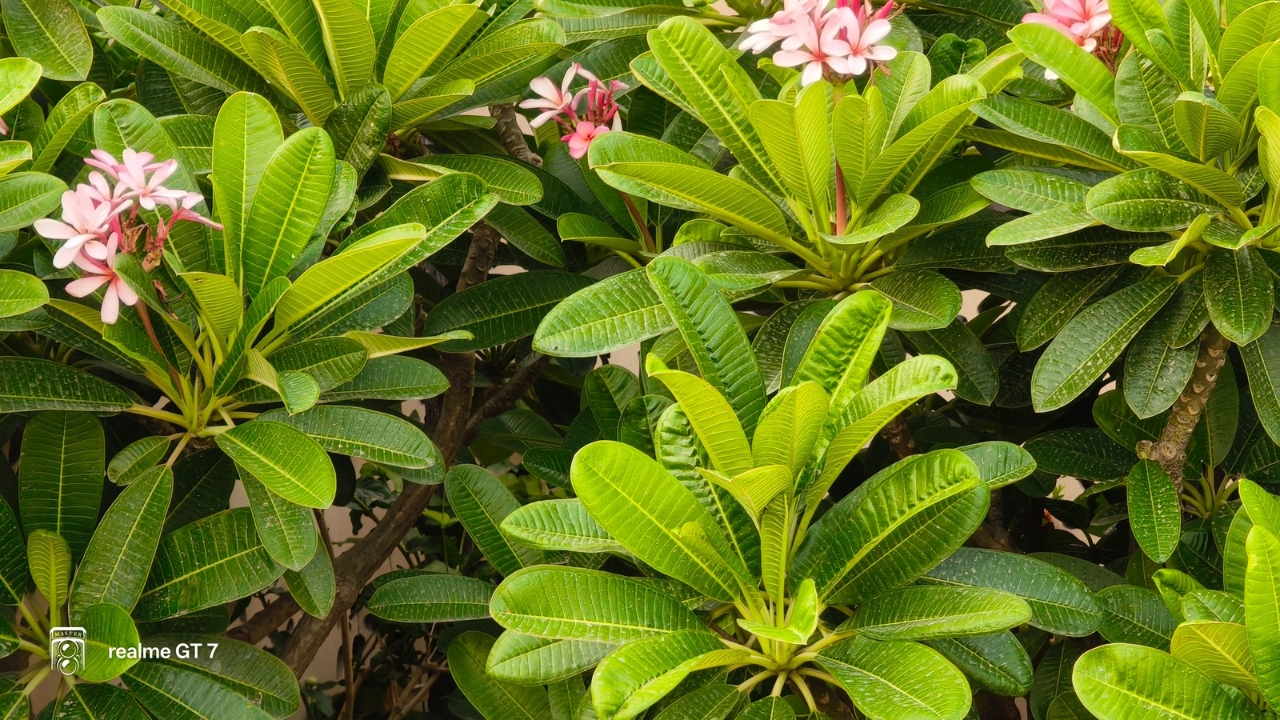
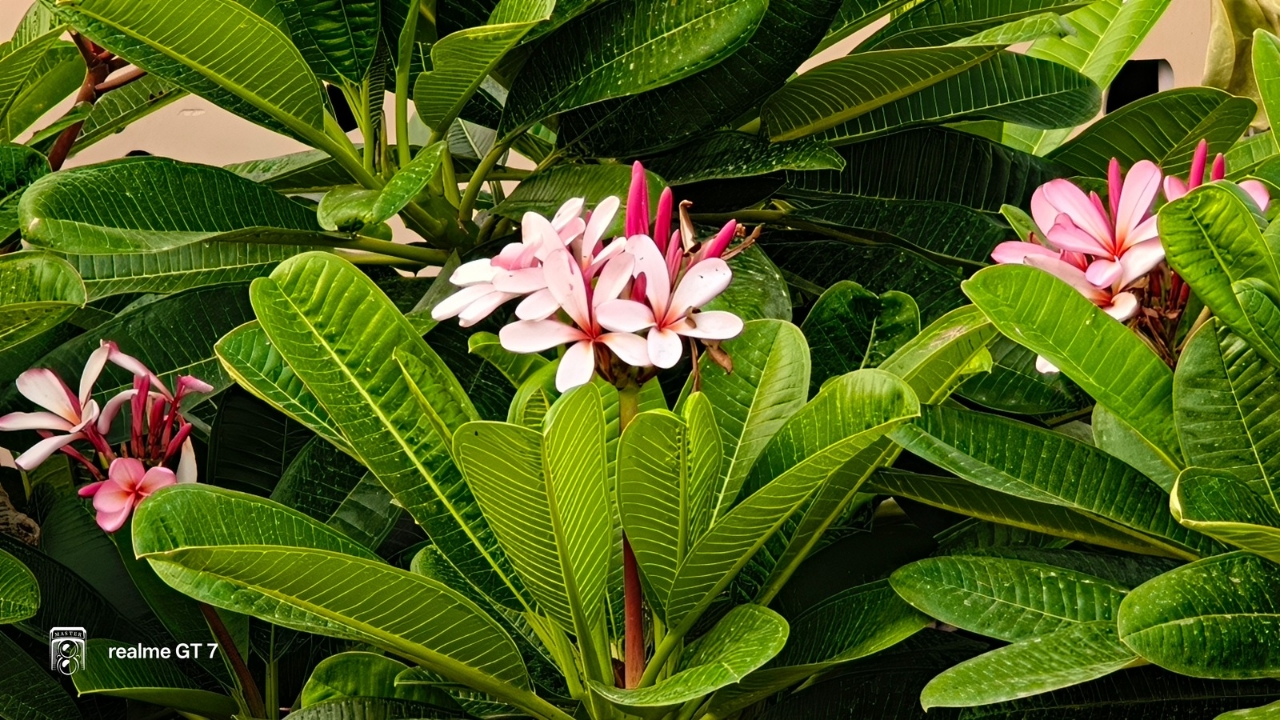
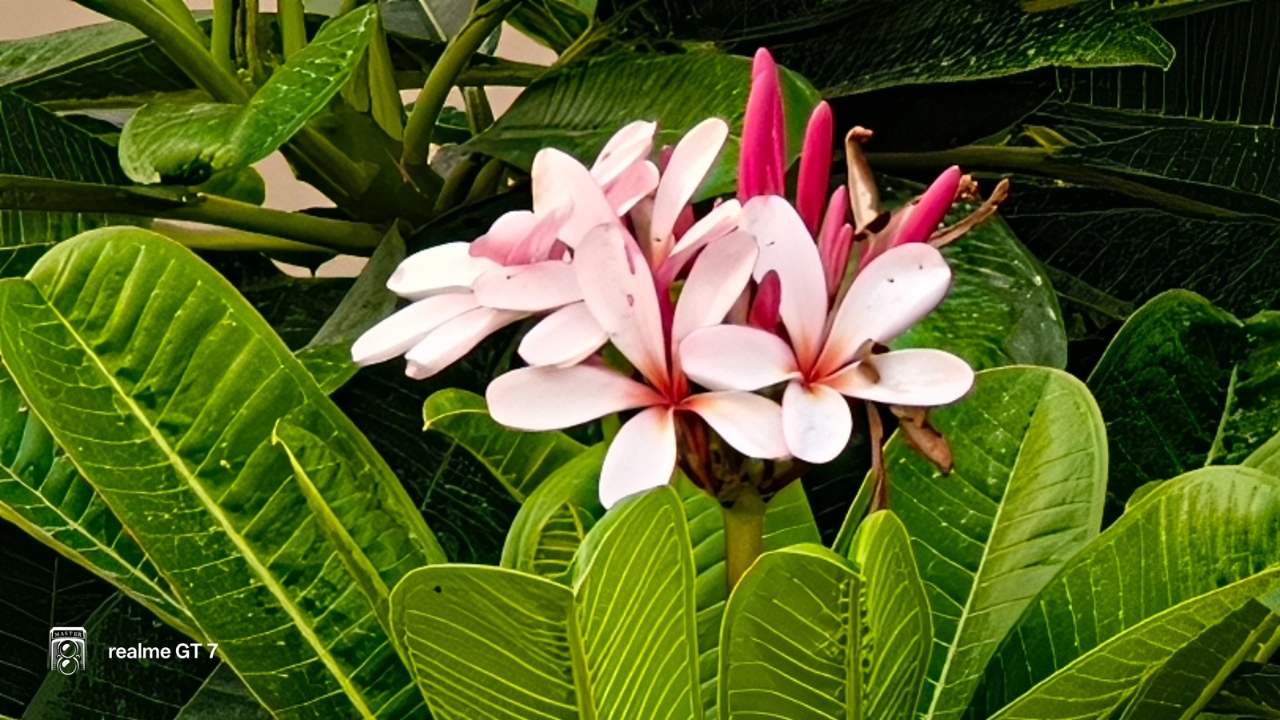
The details remain sharp and clear at 5x zoom, but things start to take a turn at 10x—images begin to look artificial due to noticeable software-based smoothening. Push it to 20x, the phone’s maximum zoom level, and the results get quite soft, as it’s entirely Digital Zoom by then, heavily relying on how well the software processes the image.
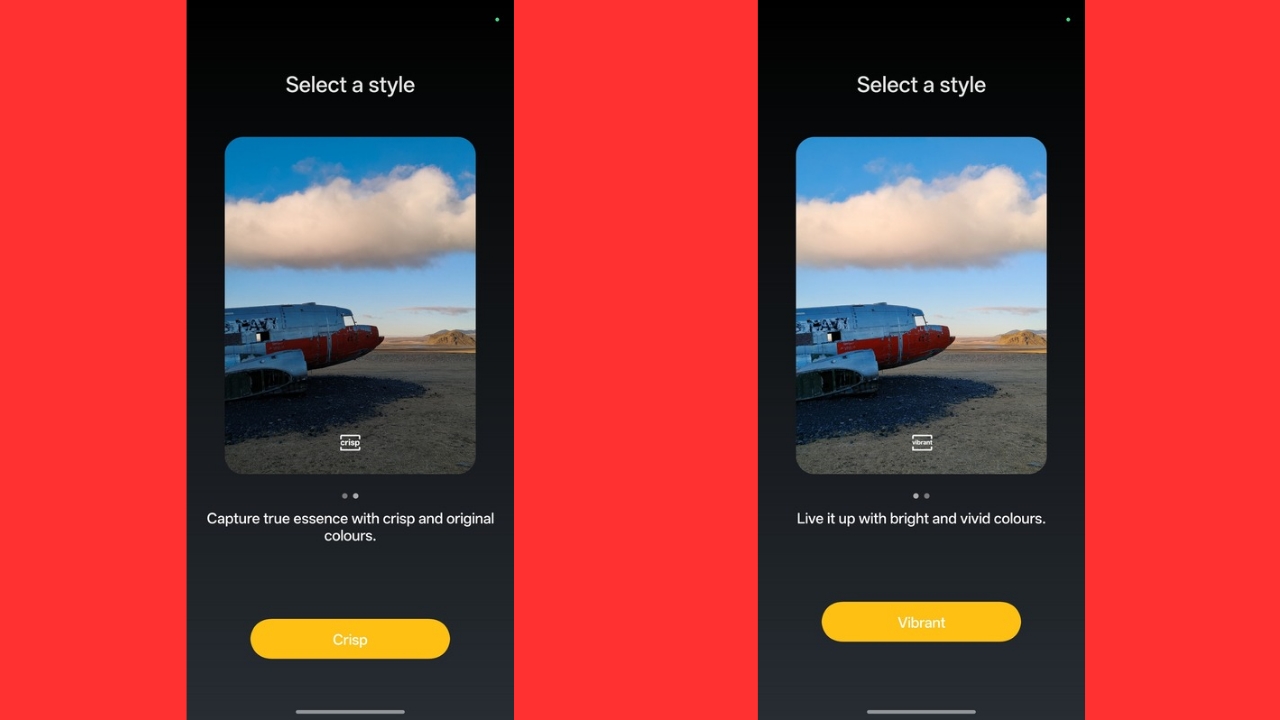
In addition, the device offers two shooting profiles—Vibrant and Crisp. The Vibrant mode produces brighter images, while the Crisp profile results in slightly darker shots. However, aside from the difference in brightness, I didn’t notice any significant variation in the level of detail between the two.
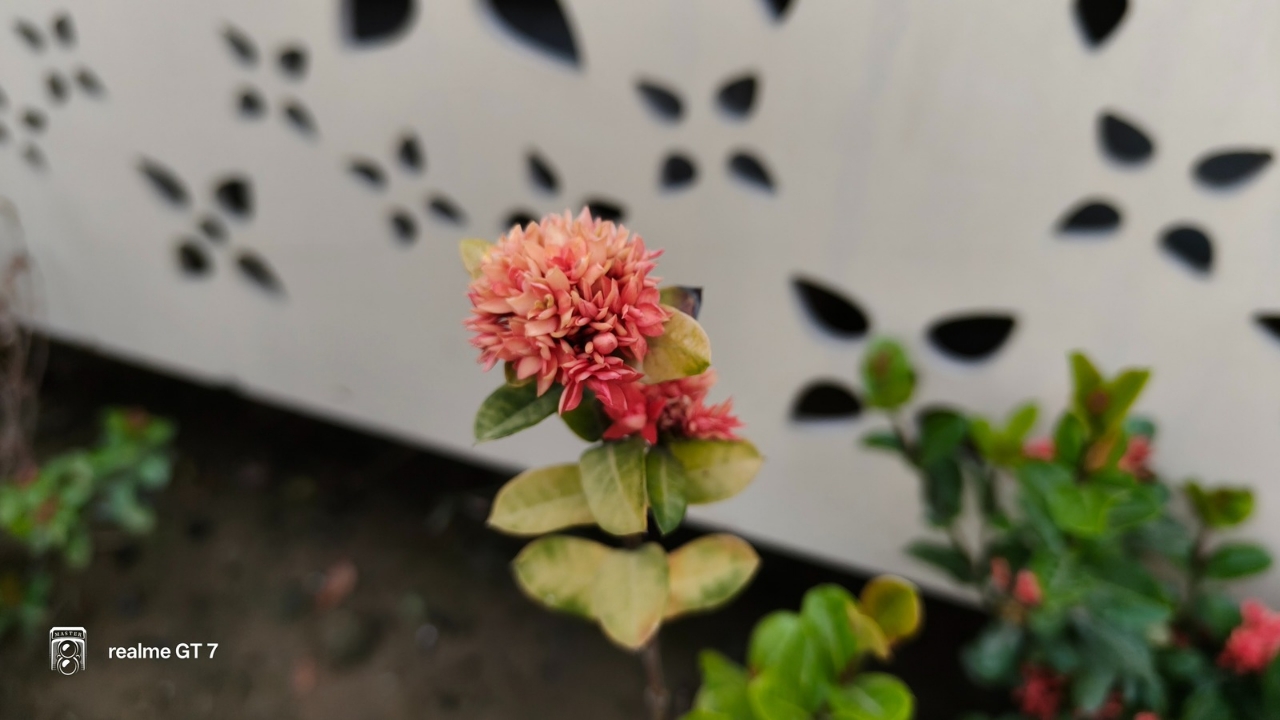
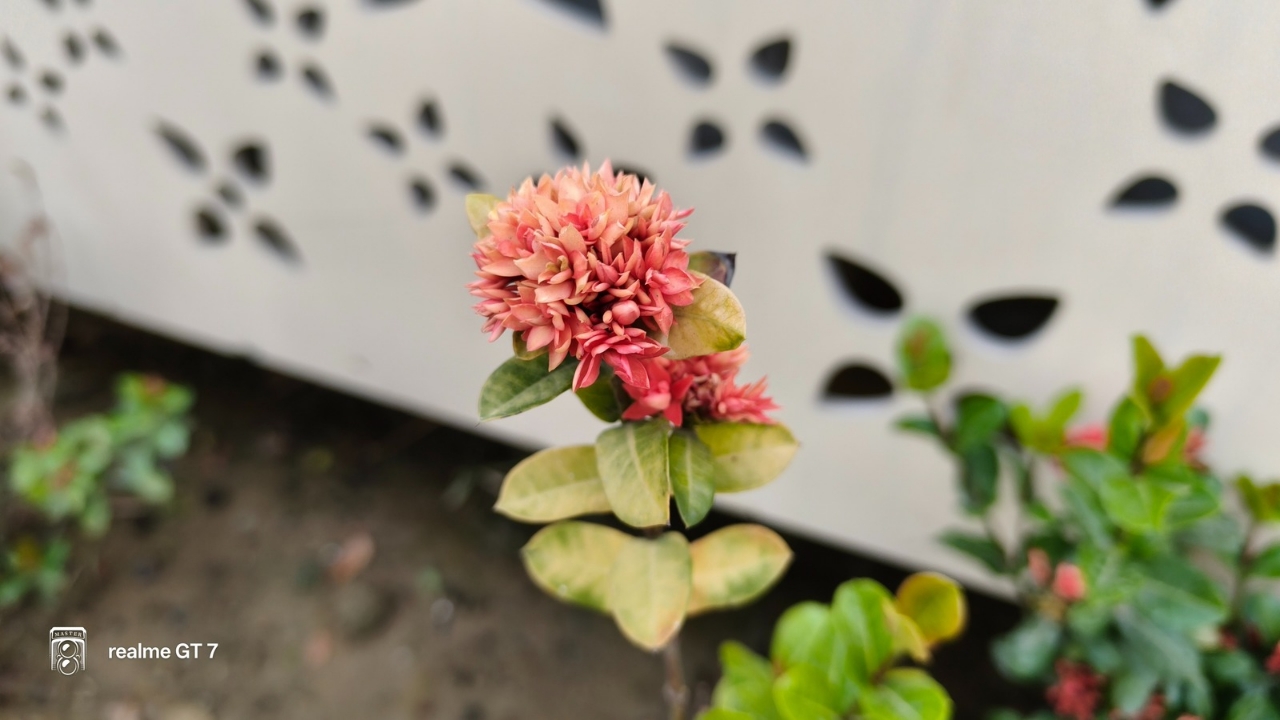
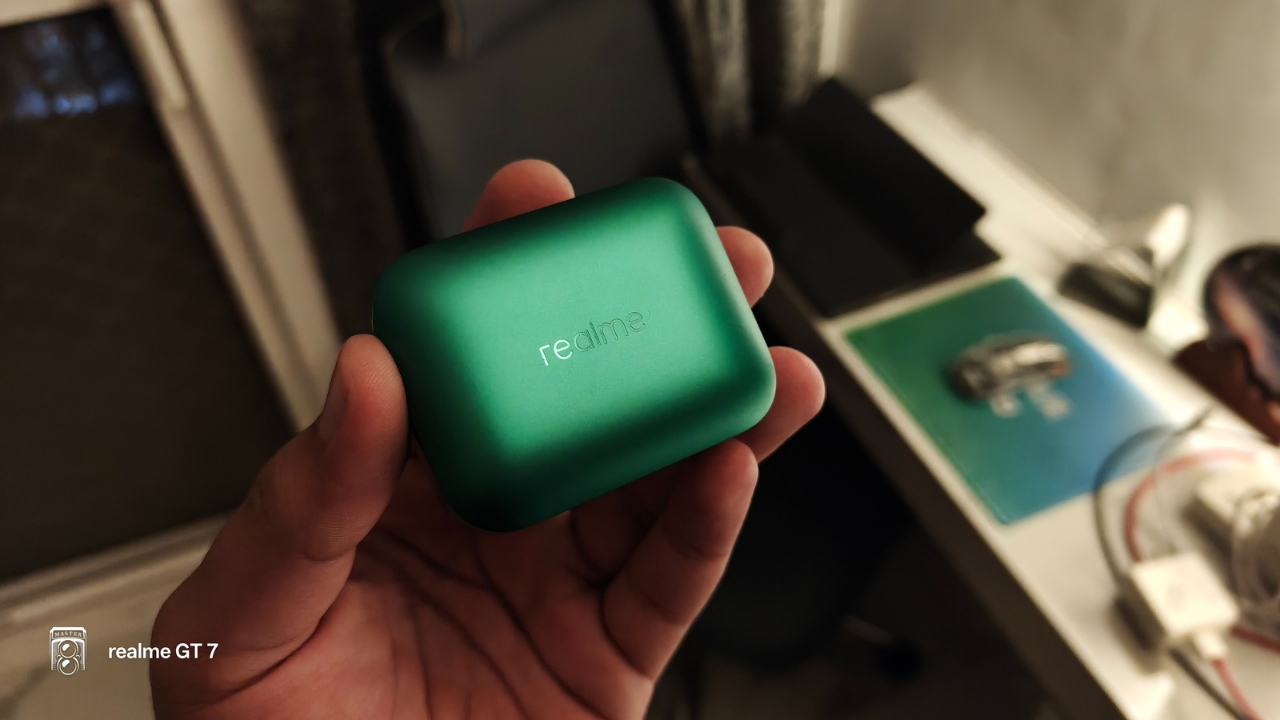
Under artificial lighting, the camera doesn’t disappoint once again. There’s a good amount of details in the photo while the colours appear highly vibrant. However, again, the photo can sometimes appear darker than it should. Further, the HDR can sometimes overcomplicate the colours under warm lighting conditions, making the shot look unnatural.

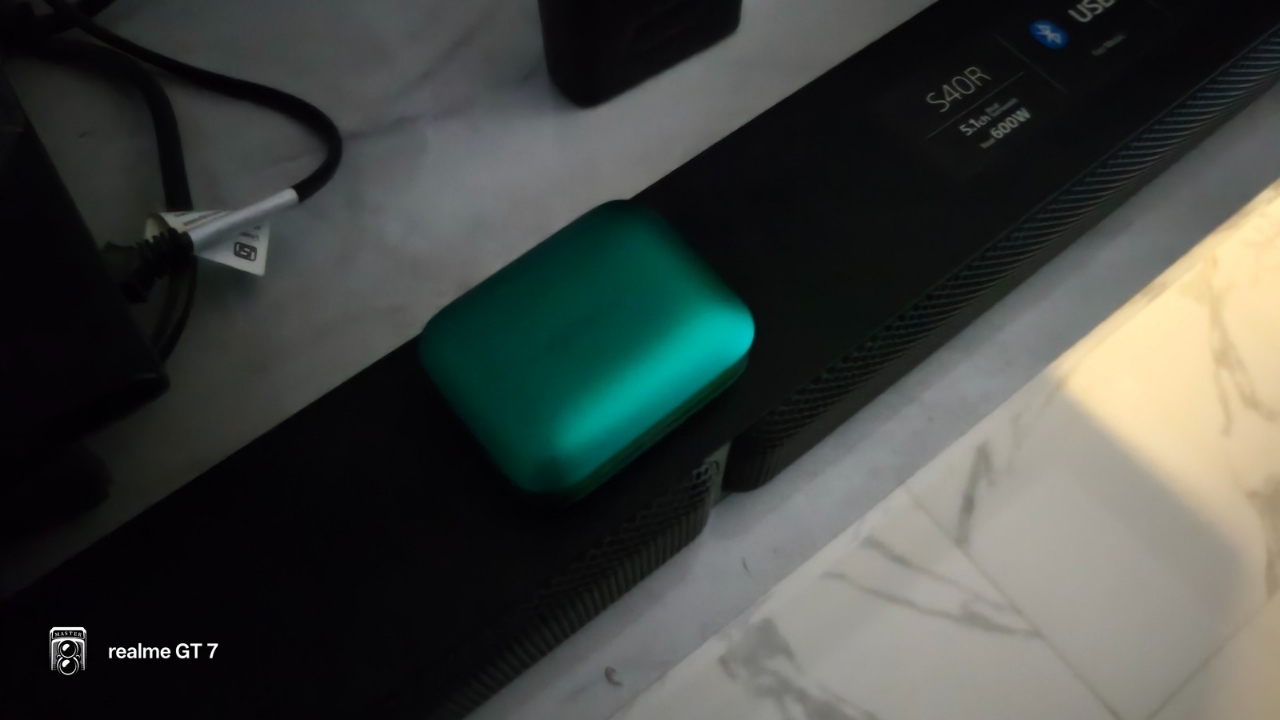
Under extremely low light conditions, the photos can begin to look soft with details going for a toss. Turning on Night mode does crank up the device exposure for better visibility but it doesn’t help with the detailing in the photo.
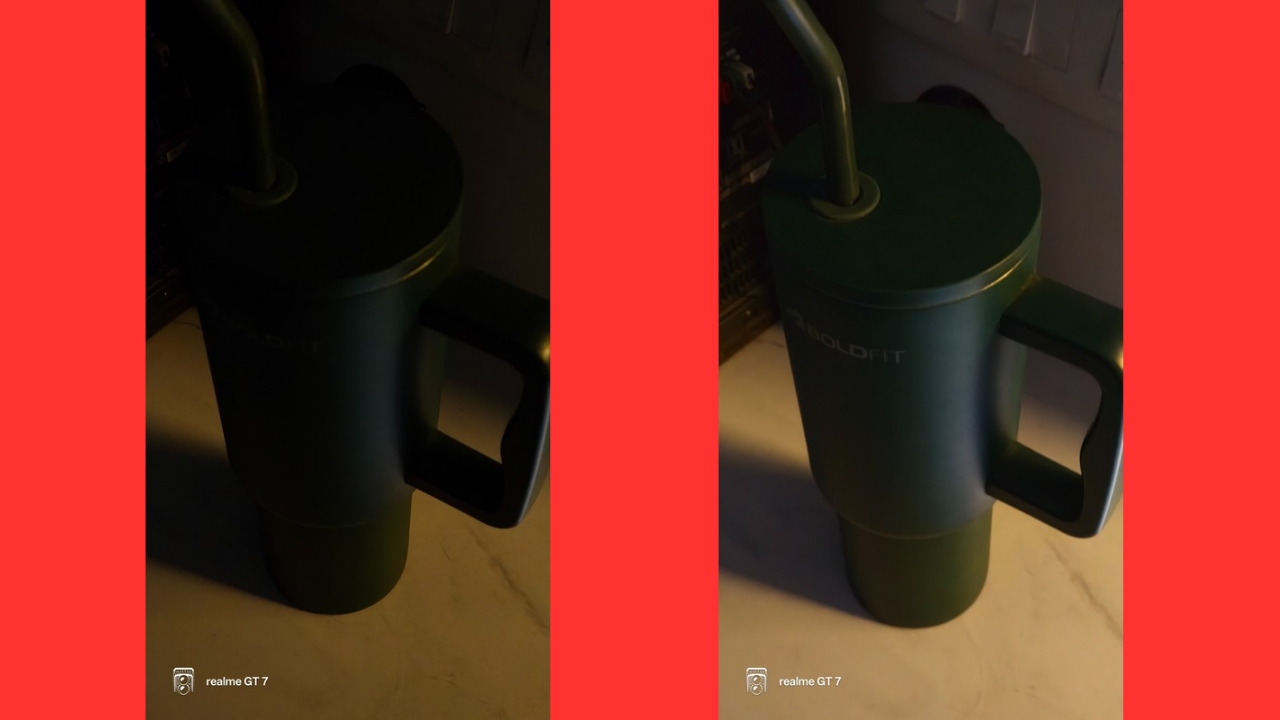
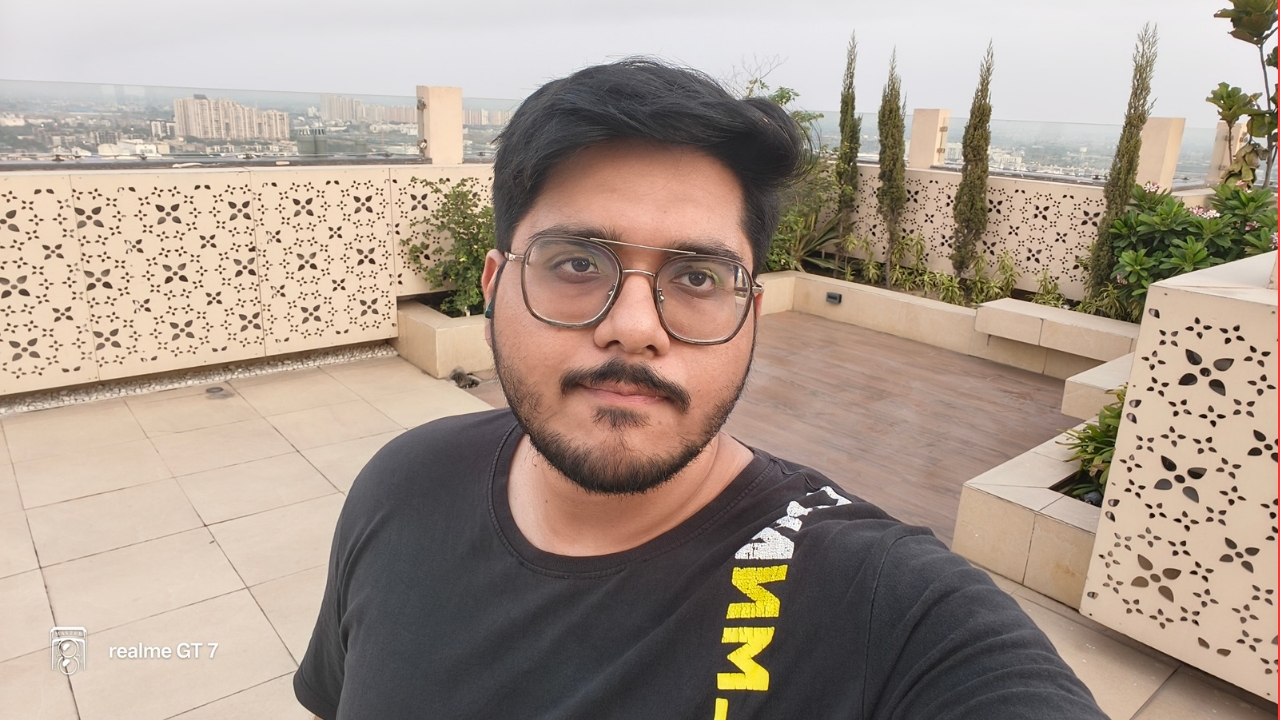

Finally, for selfies, you can expect crispy results as the sharpness of the photo is high. Portrait photos have accurate edge detection as well. Skin tones are handled decently with an overall natural colour profile for the shots, unlike the vibrancy in the photos shots from the rear sensors.


